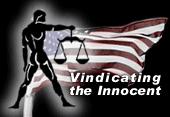
Plea Bargaining: Governmental Extortion



 Share This Article
Share This Article
By Lawyer
Nathan Wente“Where the people fear the government you have tyranny.
Where the government fears the people you have liberty.”
--John Basil Barnhill (1914)This quote is so simple and yet so profound in its truth. How then do we, the people, cause our government to "fear" us so that we may maintain liberty and live free? I believe the answer is in becoming educated about our rights as they are memorialized under the law, especially under the United States Constitution. Without knowledge and exercising of our rights there is no incentive for the government to honor them.
Plea Bargaining: Governmental Extortion
Plea bargaining is the process where a prosecutor comes to an agreement with a defendant to resolve a criminal case. Roughly 90% of all criminal cases resolve through the process of a plea bargain. The plea bargain is a contract of sorts and the terms of the agreement may often vary considerably.
A plea bargain will always include the defendant pleading guilty to at least one crime. What varies is the crime pled to or the punishment imposed. For example, a plea bargain occurs when a defendant is charged with two separate crimes and they plead to one in exchange for a dismissal of the other. A plea bargain also occurs if the prosecutor offers a specific punishment, and the judge agrees, in exchange for pleading guilty. There are many variables that affect plea bargaining; however, the common thread in all plea bargaining is that the government avoids the burden of a jury trial and the defendant gets, in theory, a more favorable resolution of their case.
At first glance this may sound like a great idea; a win - win, right? I contend it is not. In practicality what happens is that defendants may be charged with crimes that there may be little evidence to support. This process is called "overcharging." Overcharging works to threaten the defendant into accepting a plea bargain. The fear of criminal sanctions associated with the overcharged allegations is a deterrent for individuals to exercise their right to a jury trial because of the uncertainty of the outcome.
It gets worse though. Judges are responsible for sentencing and, generally speaking, they have wide discretion in how severely any given defendant is punished. However, it is illegal for a judge to punish someone for going to trial. In other words, if a person demands their right to a trial and they are convicted, the judge should not impose a more severe sentence after the trial than one the judge would have imposed had the person just pled guilty.
The issue then is, if a person could get the same sentence after a trial that they'd get before trial what incentive is there for them to give up their right to trial by pleading guilty? The answer of course is that there isn't much incentive at all. So again, as a practical matter, many judges commonly impose more severe penalties after a trial to provide additional incentive to plead.
As support for this claim I offer California Rule of Court 4.423(b)(2). This provision allows a judge to be more lenient in sentencing a defendant who, "…voluntarily acknowledged wrongdoing before arrest or at an early stage of the criminal process." Obviously, a person who exercises their right to trial loses the benefit of this provision and a more severe sanction may be imposed.
So, when does discovering truth and achieving justice occur within a system where defendants are being "threatened" by the executive and judicial branches of government to enter a plea and give up their right to a trial? Who knows. I contend the government's primary goal is not justice but to get convictions. This goal is plainly stated by this quote from prosecutor Michael Mermel, "The taxpayers don't pay us for intellectual curiosity. They pay us to get convictions."
The truth is unless society takes proactive measures to eliminate plea bargaining it is here to stay. In 2011 California introduced 725 new laws. I believe 5-10 of them were laws directed at criminalizing previously legal behavior. Each year more and more laws are passed at the Federal, State, County, and City level. Across the United States there are literally tens of thousands, if not hundreds of thousands, of criminal laws that the citizenry risks running afoul of. What is legal today may not be legal tomorrow. With the number of people being charged, and the growing number of criminal laws available to charge us, our system would collapse if the citizenry actually exercised their right to a trial. The plea bargain has become an effective tool (as evidenced by the 90% statistic given above) in our government's bag to nullify our rights, further its growth, and to keep the criminal cases moving.
The truth is that a citizenry with rights is a burden upon the government in achieving its agenda. The government most certainly fights to achieve its agenda; but are we fighting to protect our rights?
Know your rights. Stand for freedom.
Subscribe to the US~Observer News Flash Alerts!
| The US~Observer believes in our country, our constitution, and the public right to adequate representation. The
US~Observer is We survive, in part, by gracious donations. They may be sent to: US~Observer or you can click here: |
Get
a subscription
to US~Observer
delivered right to
your mailbox via
first-class mail!
Click
Here for more
information

